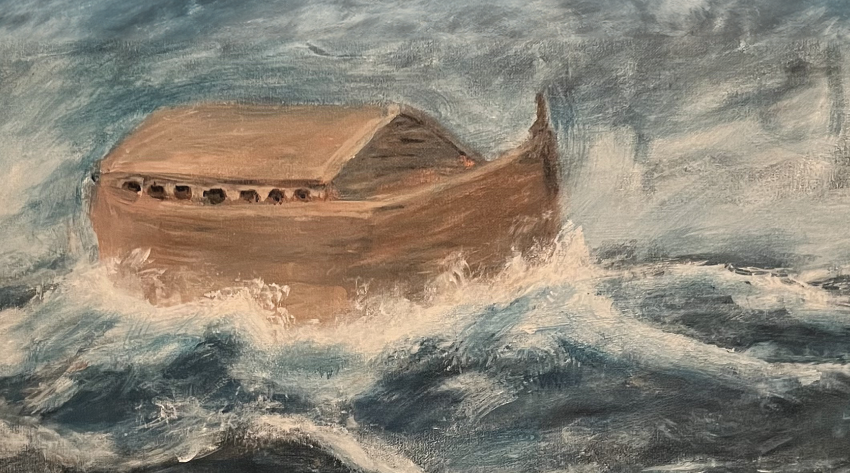
[ix] Joel, Billy, “And So It Goes” Joel Songs (BMI), 1983.
[x] Keiller, Garrison (1983) News from Lake Wobegon (“Winter”). St. Paul: Minnesota Public Radio.
[xi] Bennis, Warren and Phillip Slater (1968) The Temporary Society. New York: HarperCollins.
[xii] Miles, Matthew (1964) “On Temporary Systems,” in Matthew Miles (Ed. ), Innovation in Education. New York: Teachers College Press.
[xiii] Turner, Victor (1969) The Ritual Process. Hawthorne, NY: Aldine, 1969.
[xiv] Csikszentmihalyi, Mihalyi (1990) Flow: The Psychology of Optimal Experience. New York: Harper and Row.
[xv] Winnicott, Donald (2005) Playing and Reality. New York: Routledge.
[xvi]Schein, Edgar (1999) The Corporate Culture Survival Guide. San Francisco, CA: Jossey-Bass; Schein, Edgar (2016) Organizational Culture and Leadership. (5th Ed.) San Francisco, CA: Jossey Bass.
[xvii] Schein, Edgar (1999) The Corporate Culture Survival Guide. San Francisco, CA: Jossey-Bass; Schein, Edgar (2016) Organizational Culture and Leadership. (5th Ed.) San Francisco, CA: Jossey Bass.
[xviii] Schein, Edgar (1999) The Corporate Culture Survival Guide. San Francisco, CA: Jossey-Bass; Schein, Edgar (2016) Organizational Culture and Leadership. (5th Ed.) San Francisco, CA: Jossey Bass.
[xix] Bion, Wilfred W. Experiences in Groups. New York: Routledge, 1991.
[xx] Bergquist, William (2004) Creating the Appreciative Organization. Sacramento, CA: Pacific Soundings Press.
[xxi]Bion, Wilfred (1995) Attention and Interpretation (Rev. Ed.).Lanham, MD: Rowman and Littlefield Publishers.
[xxii] Argyris, Chris and Donald Schon (1978) Organizational Learning. Reading, MA: Addison-Wesley.
[xxiii] Bergquist, William (2004) Creating the Appreciative Organization. Sacramento, CA: Pacific Soundings Press.
[xxiv] Kahneman, Daniel (2011) Thinking, Fast and Slow. New York: Farrar, Straus and Giroux.
[xxv] Kahneman, Daniel (2011) Thinking, Fast and Slow. New York: Farrar, Straus and Giroux, pp. 20-21
[xxvi] Gregory Bateson uses the terms “proto” and “deuteron” learning in first describing first and second order learning (Bateson, Gregory (1972) Steps to an Ecology of Mind. New York: Ballantine). Later authors who were influenced by Bateson used the terms “first order” and “second order” learning (e.g. Argyris, Chris and Donald Schon (1974) Theory in Practice. San Francisco: Jossey-Bass;; Argyris, Chris and Donald Schon (1978) Organizational Learning. Reading, MA: Addison-Wesley; Senge, Peter (1990) The Fifth Discipline. New York: Doubleday; Bergquist, William and Agnes Mura (2011) coachbook, Santa Fe, NM: IPPS).
[xxvii]Bergquist, William (2019) Four Assumptive Worlds of Psychopathy I: Setting the Social Constructive Stage. Library of Professional Psychology. Link: Four Assumptive Worlds of Psychopathology I: Setting the Social Constructive Stage | Library of Professional Psychology
[xxviii] Berger, Peter and Thomas Luckmann (1966). The social construction of reality. New York: Doubleday.
[xxix] Kuhn, Thomas (2012) The Structure of Scientific Revolutions [4th Ed.] Chicago: University of Chicago Press.
[xxx] Schutz, Will (1994) The Human Element. San Francisco: Jossey-Bass.
[xxxi]O’Neill, Mary Beth and William Bergquist (2007) “Perspectives on Our Work: A Conversation About Executive Coaching,” International Journal of Coaching in Organizations, v. 5, Issue 4, pp. 36-57.
Download Article 1K Club



















